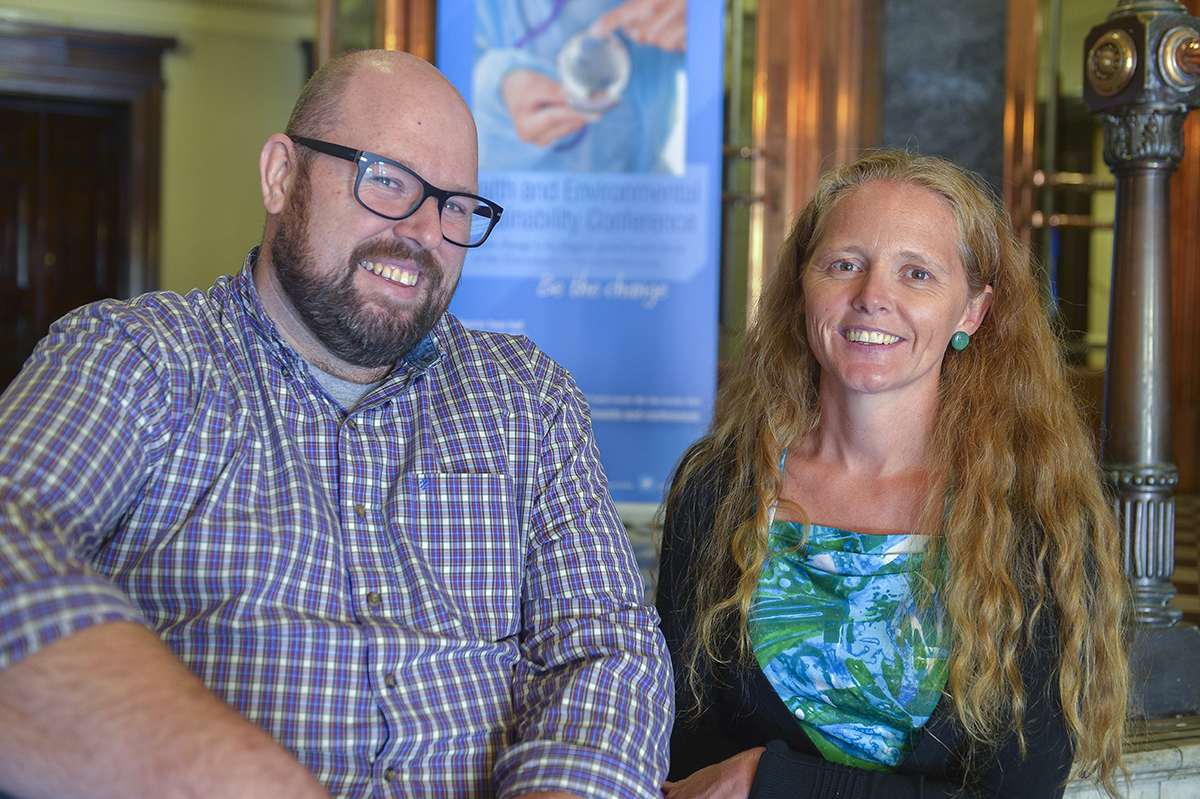
In February, we reported on members’ ongoing concerns that they are not being provided with appropriate pharmaceutical waste bins by their employers.
To recap, in 2021 members formally asked ANMF (Vic Branch), via a delegates conference resolution, to lobby the state government on their behalf ‘to require health services to implement the environmentally responsible and comprehensive pharmaceutical waste disposal schemes’ required by the Environment Protection Authority (EPA) Clinical and related waste-operational guidance. This guidance dictates that pharmaceutical waste must be incinerated.
This can only happen in healthcare settings, however, if those who are disposing of medicines are provided with a bin that is streamed accordingly. Sharps bins have often been provided for pharmaceutical waste, however in Victorian public hospitals the contents of sharps bins are not incinerated.
Nurses and midwives who are not provided with appropriate bins are therefore, through no fault of their own, placed in contravention of existing regulation, such as the EPA’s General Environmental Duty (GED). The GED makes it clear that ‘businesses have a responsibility to reduce risk to human health and the environment’ and ‘must manage [their] activities to reduce the risk of harm to human health and the environment, from pollution or waste.’
Environmental contamination is not the only risk of this situation. Disposing of Schedule 8 medicines in a sharps bin, for example, does not render the drug ‘destroyed’. There are numerous documented cases of these drugs of dependence being subsequently recovered out of the sharps container for misuse.
EPA waste audits
Due to ANMF advocacy on behalf of members, the EPA recently conducted 17 waste audits across public and private health services, which verified members’ complaints. Specifically, it found that there was inadequate provision of, and accessibility to, pharmaceutical waste bins in hospitals. Additionally, it determined that hospitals have provided inadequate training to their staff regarding waste segregation and safe disposal of pharmaceutical waste.
The services were asked to submit improvement actions. In June, the EPA followed up, advising health services of hospital inspection campaigns targeting the adequacy of pharmaceutical waste bins and systems in place for lawful disposal, as well as training records to determine if the appropriate training has been conducted.
In response to queries from ANMF, the EPA’s Chief Executive Officer Lee Miezis said that the authority has seen ‘a positive response from the Victorian hospital sector’ to its regulatory action over the last 12 months to improve pharmaceutical waste management.
‘Victorian hospital operators have generally shown a willingness to improve their practices in order to comply with Victoria’s General Environmental Duty,’ Mr Miezis said. ‘Of the 17 hospitals subject to our recent investigations, 16 have provided EPA with evidence that adequate training has been provided to staff on pharmaceutical waste management.
‘While five of the 17 hospitals are still to implement an adequate number of pharmaceutical bins, all operators have committed to EPA that they are taking action to become compliant over the coming months. Our officers are checking in on these remaining sites regularly. We will ensure these operators follow through with their commitments and will issue legal notices to sites that fail to comply.’
Mr Miezis also noted that all 17 hospitals subject to EPA investigations to date have committed to providing the EPA with a copy of their next independent waste audit report so that the authority can monitor their compliance.
‘We will continue to work alongside the Department of Health to ensure that a high standard of compliance for pharmaceutical waste management is maintained across the sector,’ he said.
‘Where hospital operators fail to meet the required standards we will take action to compel higher performance in line with our compliance and enforcement policy. This may include the issue of notices, and sanctions for operators that fail to comply.’
Hand sanitiser also a clinical waste issue
In a letter to services, dated 11 June 2024, the EPA noted that it ‘has also detected and is investigating unlawful disposal of out-of-date hand sanitiser, originating from the health sector. Out-of-date hand sanitiser is a reportable priority waste and a dangerous good and must be disposed at an EPA licensed treatment facility.’
The letter also reminded services that in order to comply with the GED, Victorian hospitals must at a minimum:
- Engage an independent waste auditor to conduct an annual assessment of hospital waste management practices.
- Action all outstanding waste audit recommendations as soon as possible.
- Develop and communicate waste management roles, responsibilities and procedures to staff.
- Periodically review and refresh staff knowledge of waste management and disposal practices.
- Ensure systems are in place to maintain the above.
What can members do in the meantime?
The EPA have opened a Pollution Hotline for the reporting of non-compliant pharmaceutical waste disposal. ANMF (Vic Branch) recommends the first line of enquiry is internal to your organisation. Where this does not yield results, the EPA supports reporting.
‘EPA encourages ANMF members who observe unlawful waste handling practices or suspect non-compliances with Victoria’s General Environmental Duty are occurring in their workplaces to report these matters to us on our pollution hotline (1300 372 842) or by emailing contact@epa.vic.gov.au,’ Mr Miezis said.
‘All pollution reports received by EPA are treated confidentially, and ANMF members who report pollution to us can choose to do so anonymously,’ he added. ‘We take all allegations of non-compliance with Victoria’s environmental laws seriously.’
New EBA clause
In the event of a successful vote by members of the new public sector EBA, ANMF will also have additional levers to pull by way of a new climate change clause (clause 16(b)), which acknowledges climate change as a health issue, and contains a draft commitment to:
- continuous improvement at a local workplace level to integrate environmental considerations into decision-making
- integrating environmental sustainability into workplace implementation committees and other committees.
A claim for this is also reflected in the public mental health log of claims.
Note: As the clause is still in draft, ANMF (Vic Branch) will update members with more about this addition once a successful yes vote has occurred.
What else has ANMF done?
With the Department of Health and VicTAG (an independent, not-for-profit association comprising hospital pharmacists, medical specialists, and drug and therapeutic committees from Victorian public hospitals), the Branch has developed educational materials, and brought stakeholders together in a pharmaceutical waste disposal webinar. You can view the webinar at any time using the password AzHB2QG*.




